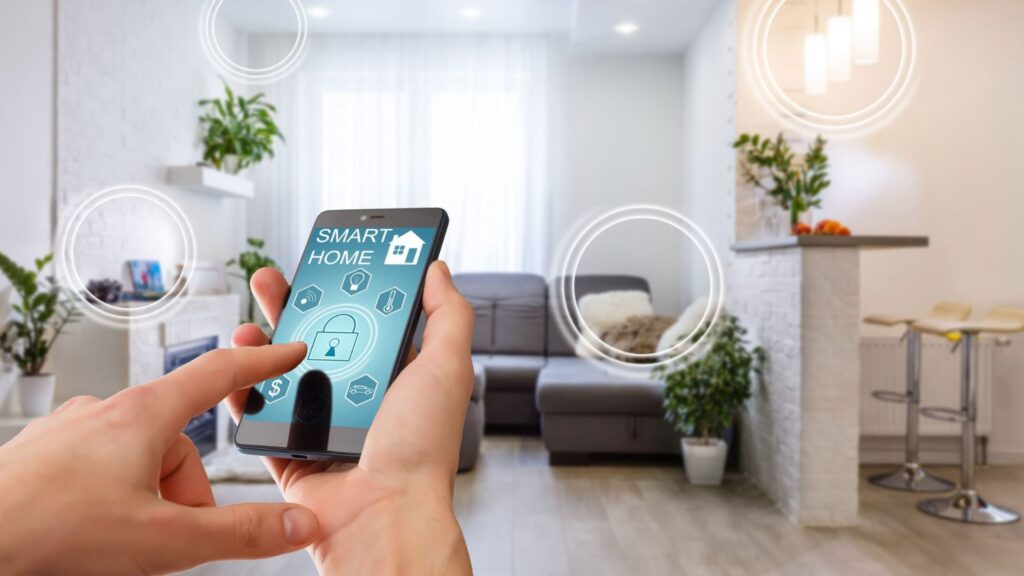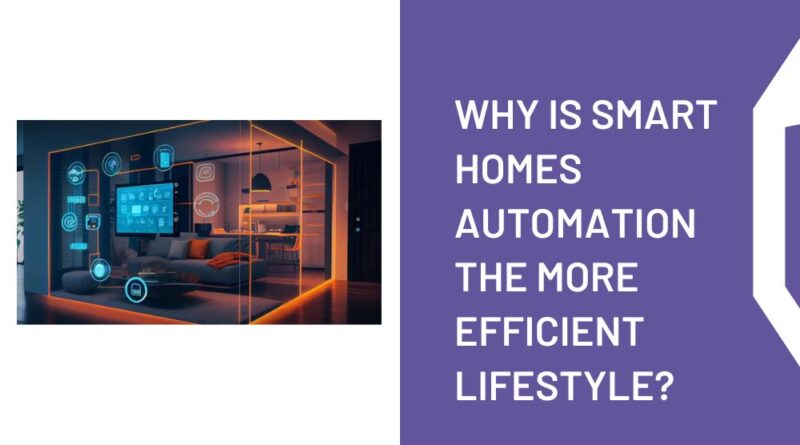Why Is Smart Homes Automation the More Efficient Lifestyle?
Technology plays a significant role in simplifying our daily routines, and one of the most impactful advancements is smart homes automation. More than just a trend, smart home automation is shaping the future of modern living. It transforms ordinary homes into intelligent systems that enhance comfort, security, and efficiency. But how exactly does this work, and why is it considered the more efficient lifestyle?
In this blog, we’ll explore the many reasons why smart home automation is becoming essential for a more organized and energy-efficient way of living.
What Is Smart Home Automation?
Smart home automation is the process of using technology to control and monitor various household systems and appliances. Through devices such as smartphones, tablets, or even voice-activated assistants, homeowners can automate tasks and manage systems remotely. Whether it’s turning on lights, adjusting the thermostat, or controlling home security, smart automation allows you to do it all with ease.
How Smart Home Automation Works
Smart home systems typically use Wi-Fi, Bluetooth, or other wireless technologies to communicate between devices and the home’s control system. This system allows users to program specific tasks, set schedules, and automate various functions, all from one central platform. Whether it’s using an app or voice commands, you’re in control of your home, wherever you are.
The Convenience of a Smart Home
One of the main reasons people turn to smart home automation is for its convenience. Managing a home can be time-consuming, and smart technology helps make daily tasks easier to handle.
Simplifying Everyday Tasks
Imagine a day where you never have to worry about turning off the lights, adjusting the thermostat, or locking the doors. With smart home automation, you can set these tasks to happen automatically. For example, lights can turn on when you enter a room and turn off when you leave. The thermostat can adjust itself based on your schedule, ensuring your home is always at the perfect temperature.
Remote Control from Anywhere
Smart home devices allow you to control and monitor your home from anywhere in the world. Whether you’re at work, on vacation, or just out for a quick errand, you can use your smartphone to check on your home. Forgot to turn off the air conditioner? No problem – simply adjust it from your phone. Need to let a family member into the house while you’re away? Unlock the door with the touch of a button.
Energy Efficiency and Cost Savings
In addition to convenience, smart home automation plays a huge role in making your home more energy-efficient. By using energy wisely, you not only reduce your environmental impact but also save money on utility bills.
Smart Thermostats and Energy Management
One of the most popular smart home devices is the smart thermostat. Unlike traditional thermostats, smart thermostats learn your habits and automatically adjust the temperature based on when you’re home or away. This helps you save energy when heating or cooling is not necessary. Over time, this results in significant cost savings on your energy bill.
Efficient Lighting and Appliance Use
Smart lighting systems allow you to control your lights with timers or motion sensors, ensuring they’re only on when needed. Similarly, smart plugs and appliances can be programmed to turn off when not in use, preventing unnecessary power consumption. This means you’re using energy only when you need it, reducing waste and lowering costs.
Enhanced Security with Smart Home Automation
Another key benefit of smart home automation is the boost in home security. Smart security systems give homeowners peace of mind, knowing their homes are protected, whether they’re inside or miles away.
Real-Time Monitoring and Alerts
Smart security systems come with cameras, motion detectors, and sensors that monitor your home 24/7. You can access live video feeds directly from your smartphone, allowing you to check on your property at any time. If something unusual is detected, such as movement outside your front door, you’ll receive instant alerts. This allows you to take immediate action if needed.
Automated Locks and Entry Systems
Smart locks let you control your home’s entry points without physical keys. You can lock or unlock doors remotely, ensuring your home is secure. You can also give temporary access to family members, friends, or service providers by providing a unique code, which can be revoked once their visit is over. This eliminates the worry of losing keys or wondering if you remembered to lock the door.
Improved Comfort and Personalization
Smart home automation goes beyond convenience and energy efficiency – it also enhances your comfort by personalizing your living environment.
Tailored Lighting and Climate Control
Smart home systems allow you to adjust your home’s atmosphere according to your preferences. Set your lighting to match your mood, or program it to change throughout the day. For example, bright light in the morning can help you wake up, while dimmed lights in the evening can create a relaxing environment for unwinding. Similarly, smart thermostats can adjust the temperature to match your preferences, making your home a cozy retreat, whether it’s summer or winter.
Entertainment at Your Command
Smart home automation also integrates with your entertainment systems. Voice-activated assistants like Amazon Alexa or Google Home can control your TV, sound system, or even stream music to different rooms. Want to watch your favorite show, or listen to music while cooking? Just say the word, and your home will respond.
Easy Maintenance and Problem Detection
Managing a home involves more than just comfort and security – it also requires maintenance. Smart home technology helps you stay on top of home maintenance by detecting problems early.
Early Detection of Leaks and Malfunctions
Smart sensors can be placed in key areas like basements, bathrooms, or kitchens to detect leaks before they cause significant damage. If water is detected, the system alerts you immediately, giving you time to take action. Similarly, smart systems can monitor appliances for potential malfunctions, notifying you before they become major issues.
Maintenance Reminders
Smart home systems can also remind you when it’s time for routine maintenance. For example, they can alert you when your HVAC system needs a filter change or when your smoke detectors need new batteries. This ensures your home is always functioning at its best, reducing the chances of costly repairs.
The Future of Smart Homes
As technology continues to evolve, smart home automation will become even more advanced, further enhancing efficiency, security, and convenience.

Artificial Intelligence and Machine Learning
With the development of artificial intelligence (AI) and machine learning, smart home systems will become more intuitive, learning your habits and preferences to better anticipate your needs. For example, smart thermostats may predict when you’ll arrive home and adjust the temperature accordingly, or lighting systems might adapt based on your routine.
Integration with Renewable Energy
Future smart homes may also integrate more seamlessly with renewable energy sources, such as solar panels. This will enable homes to not only reduce energy consumption but also generate and store their own energy, making homes more sustainable.
Conclusion
Smart home automation is transforming the way we live by making our homes more efficient, secure, and comfortable. From saving energy to improving security and personalizing your environment, smart home technology offers a lifestyle that’s not only convenient but also future-ready. As this technology continues to evolve, it’s clear that smart homes are the more efficient and sustainable way to live, providing both immediate benefits and long-term rewards.
Note:- To read more articles visit on techybusinesses.

